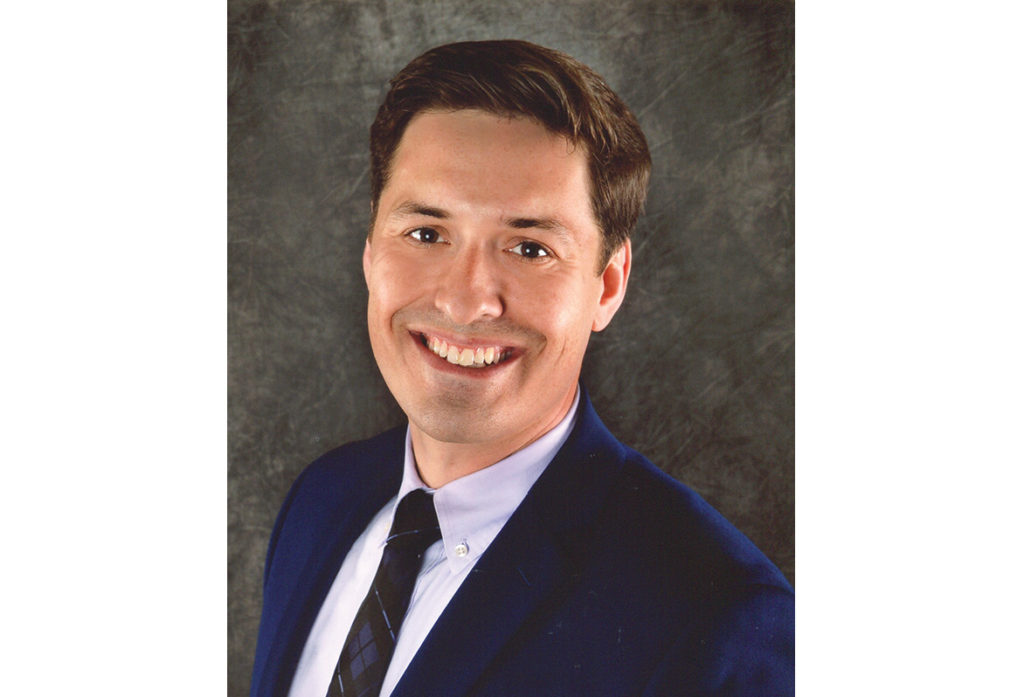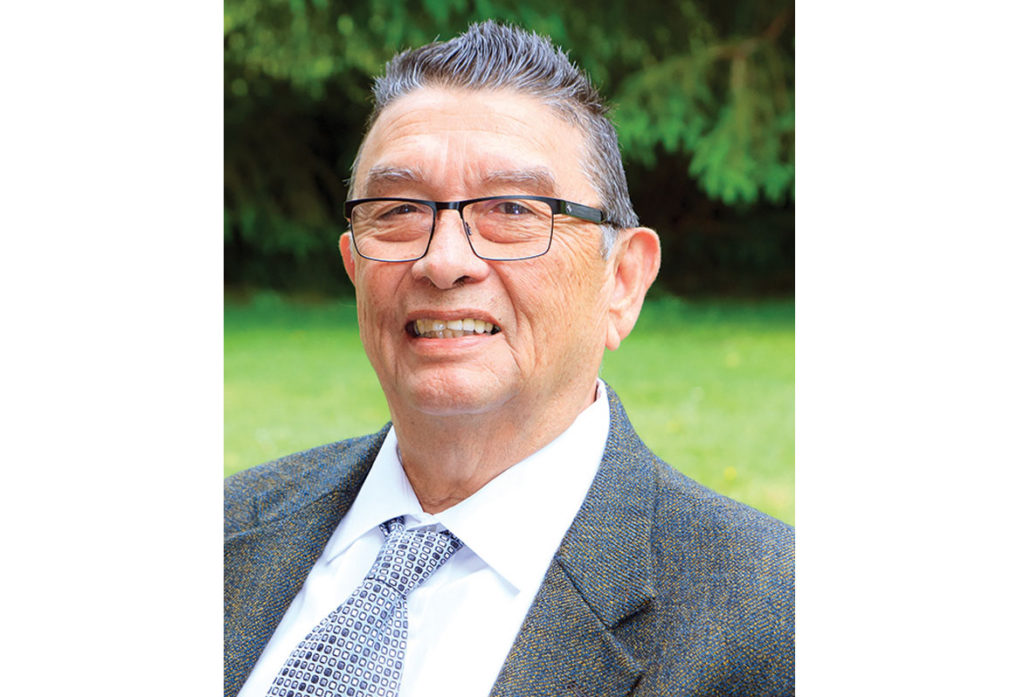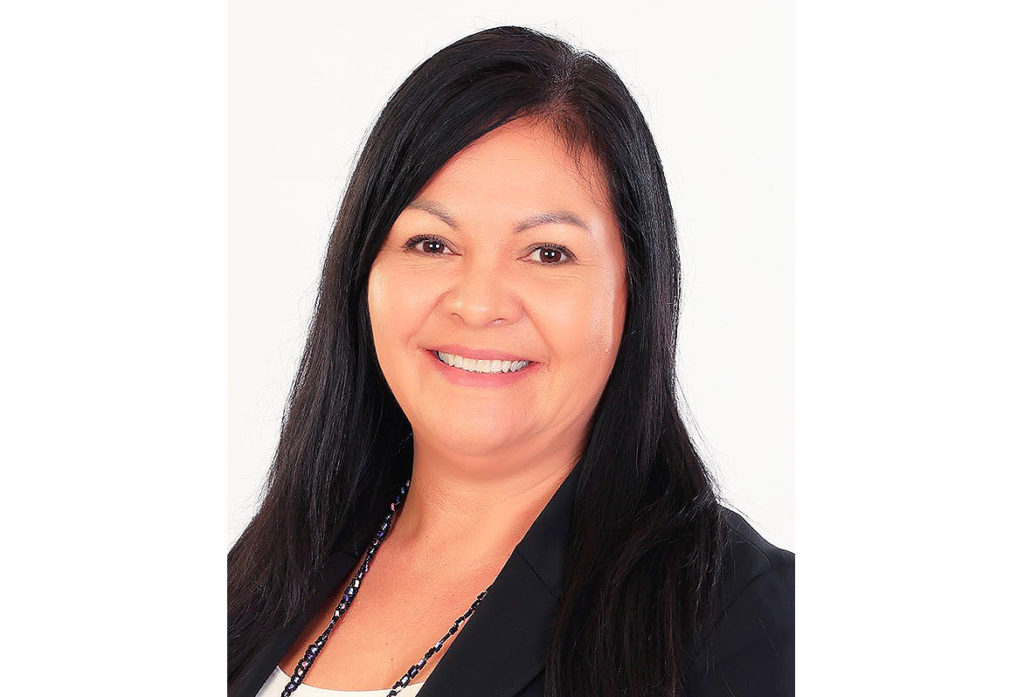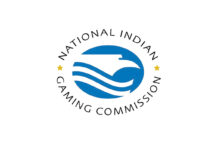Four tribal leaders share how gaming revenues have benefited their tribe and community; the initiatives and goals for their gaming enterprises; legislative/political issues of concern; and advice for tribal youth interested in developing leadership skills. Here is what they had to say…

Austin Lowes, Chairman
Sault Ste. Marie Tribe of Chippewa Indians
Kewadin Casino, Sault Ste. Marie; Kewadin Casino,
St. Ignace; Kewadin Casino, Manistique; Kewadin Casino, Christmas; Kewadin Casino, Hessel – MI
kewadin.com / saulttribe.com
BENEFITS OF GAMING: The Sault Tribe and surrounding community benefits from gaming in multiple ways. The Sault Tribe employs 748 individuals in its casinos, making the tribe one of the largest employers in Michigan’s Upper Peninsula. The revenue generated from gaming pays for tribal services such as social service programs, emergency and transitional housing, funeral assistance, higher education, and children’s Christmas parties, to name a few. Furthermore, the tribe provides a great deal of funding through its two percent agreement with local governments. This funding agreement helps fund local law enforcement, fire departments, recreational programs, township buildings, and other tribal projects and initiatives.
GOALS & INITIATIVES: The goal for the Sault Ste. Marie Tribe of Chippewa Indians and Kewadin Casinos is to reinvest into our current assets. By doing this, we will be able to pivot to the new gaming industry trends, which will enable us to continue to be a local economic driver to the areas we serve. Keeping up with these trends will ensure prosperity for our tribal community as we continue to partner with our local communities. Our legacy is to bring growth, longevity, and stability to the rural communities that we operate within.
Over the next few years, we are working to upgrade our flagship hotel and casino in Sault Ste. Marie by replacing siding and windows and renovating every hotel room. In the near future, we will also upgrade our four outlying properties.
LEGISLATIVE: There are many issues facing our tribal community. This includes challenges to ICWA, Missing and Murdered Indigenous Relatives, environmental justice issues like pipelines in Indian Country, violence against Native women, substance misuse, increased rates of suicide, and many more issues.
YOUTH LEADERSHIP ADVICE: We can overcome anything by working together and building upon the work of those who came before us. I recommend that tribal youth learn more about their tribe’s history, become involved in their tribe’s government, and find ways to volunteer to help those that need it most in their tribal communities.

Dale Miller, Chairman
Elk Valley Rancheria
Elk Valley Casino – Crescent City, CA
elkvalleycasino.com / elk-valley.com
BENEFITS OF GAMING: Besides providing over 140 jobs to area residents, tribal gaming revenues have benefited both our tribal members and local community in multiple ways. Revenues fund critical government services for tribal members including, but not limited to, health insurance, education programs, housing, and elder services. In addition, these revenues support governmental programs that maintain and improve housing, roads, buildings, and other critical infrastructure on the Rancheria. Staff, supported by these funds, work with the local governments in applying for tribal-focused grant funds to improve community infrastructure including water, sewer, emergency response, roads, parks, and many others. Additionally, gaming revenues support donations/scholarships to many non-profits and youth education/sports programs in our local community.
GOALS & INITIATIVES: Elk Valley has several initiatives and goals for the Elk Valley Casino and for the tribe. Our goals and objectives are in large part shaped by the tribe’s values and circumstances, as well as the vision for the future. Some of our common objectives include that Elk Valley Casino help the tribe pursue integrating and promoting tribal culture within the gaming enterprise, ensuring that it aligns with the values and traditions of the tribe. The tribe also implements responsible gaming practices and supporting initiatives that address potential negative impacts, such as addiction and other social issues. We also continue to explore opportunities to diversify revenue sources beyond gaming, including hospitality, entertainment, and other business ventures.
It’s important to the tribe to engage in a comprehensive planning process that involves input from tribal leaders, community members, and relevant stakeholders to create a roadmap that aligns with the tribe’s long-term vision and goals. We feel that we’ve had some success in those efforts and are looking forward to adding several amenities to the Elk Valley Casino over the next few years.
LEGISLATIVE: Protecting and maintaining tribal sovereignty is a fundamental concern. This includes the ability of tribes to govern themselves, make their own laws, and manage their internal affairs without interference. Some opponents are attacking tribal sovereignty and the very core of the political classification of tribes in an effort to claim that tribes don’t enjoy sovereignty and are instead just a racial classification. Nothing could be more devastating than one or more of those attacks being successful. Clarifying and asserting tribal jurisdiction over criminal and civil matters within tribal territories is also an ongoing concern. Coordination between tribal, state, and federal law enforcement agencies is often a complex issue. Elk Valley is located in a Public Law 280 state and we have generally enjoyed a solid and productive relationship with local law enforcement and governing bodies.
YOUTH LEADERSHIP ADVICE: Become involved in your tribe by attending meetings and functions. Be interested and be open to learning from many different perspectives and viewpoints. Be compassionate yet willing to do the right thing, even when it may be unpopular. Life is full of difficult decisions. The role of a leader is to consider all aspects and then make decisions based upon facts and outcomes.

Sherry Treppa, Chairperson
Habematolel Pomo of Upper Lake
Running Creek Casino – Upper Lake, CA
runningcreekcasino.com / hpultribe-nsn.gov
BENEFITS OF GAMING: The Habematolel Pomo of Upper Lake Tribe resides in Upper Lake, CA, a rural area in the northern part of the state where we operate a small casino, Running Creek Casino. The Upper Lake community and surrounding county struggle with limited resources, high poverty and unemployment rates, and are long distances from larger, more populated cities.
Since opening in 2012, our tribal casino has contributed significantly to the local economy and job market, employing over 140 community members, both tribal and non-tribal. Additionally, the casino provides direct funding to the county and state fire department through a Memorandum of Understanding. Lastly, the casino development enabled the Habematolel (then landless) to restore 11.24 acres of land – the first of our efforts to reacquire land lost through our tragic history, allowing the tribe to explore non-gaming economic opportunities, which have provided significant revenue to the tribe.
Though the casino is a staple in the community and a proud accomplishment for the tribe, due to our remote location, along with the expenses of the fight to construct the casino in a highly competitive market, we have not found the success in gaming that many larger, more urban tribes have found. Unfortunately, our gaming operation has only serviced its debt (we officially retired our debt in December 2023) and is not yet producing governmental revenues or making significant contributions to the tribal economy.
Therefore, our tribe has looked to e-commerce and other investments to find new ways to fund tribal government programs and build a sustainable tribal economy to advance our objectives. Our tribe recognizes that the only way to build a secure future is by diversifying our economy.
GOALS & INITIATIVES: We are proud of our entire Running Creek Casino team and grateful for the work they do every day to provide excellent experiences and full-service gaming for all of our visitors. We are constantly exploring innovations that could make our casino more impactful for our tribe and local community. Now that the debt is retired and covenants are lifted, we will attempt to enhance the gaming experience with additional amenities and customer experiences, provided that it would prove a reasonable return on investment.
LEGISLATIVE: Habematolel is heavily active in government outreach and advocacy at all levels. We operate under the belief that collaborative government-to-government relationships are vital to sustaining our tribe’s mission of self-sufficiency and self-determination. To that end, we have worked to develop relationships and work with local, state, and federal representatives to advocate and promote our goals and objectives, and to follow legislation, court cases and political issues that affect our tribe and Indian Country as a whole.
In California, our team works to ensure Habematolel and other tribes’ gaming operations remain protected. This includes tracking cardroom legislation such as AB 341 and SB 549, which address reinstating the statewide cardroom moratorium and determine whether certain games operated by California cardrooms violate state law and infringe upon tribal exclusive gaming rights, respectively. We have called on the California Legislature and State Attorney General to take action to address these violations and ensure that cardrooms are adhering to the law, and we will continue to do so in the 2024 legislative session.
Additionally, we are interested in the rapid emergence of remote wagering and/or internet gaming, both statewide and nationwide. We are providing feedback on state ballot measures attempting to legalize sports betting with varying tribal implications, as well as working with federal agencies addressing online gaming policies and following related court cases.
Our stance is that regulations should not impair tribes’ inherent regulatory jurisdiction and ownership over its data, regardless of the specific standards developed by federal agencies. Specifically, tribes have the same rights as other governments to assert and protect their digital jurisdiction and sovereign authority over their data related to their citizens, their businesses and enterprises, and their activities online; and the collection, use, and application of such data is subject to tribal law and policies.
With respect to these rights, last year, NCAI (through our efforts) passed a resolution calling upon the Administration, the White House Council of Native American Affairs, and federal agencies to take appropriate actions to ensure tribal digital jurisdiction is acknowledged and addressed in federal policies and actions.
Overall, we are engaged in a number of efforts, which reflect our mission of self-reliance and self-determination.
YOUTH LEADERSHIP ADVICE: I am a strong believer in providing opportunities for young people, tribal and non-tribal, especially those who might not have the necessary resources at their disposal. That is why our tribe offers various programs and opportunities for our youth members, which help them build and develop leadership skills. My advice to our young people and future leaders is to be willing to work outside your comfort zone, get comfortable with public speaking, and over-prepare when given a task. These are pieces of advice that I learned later in life or was forced to learn that I give people early in life in order to set them on a pathway to leadership.

Elizabeth “Libby” Rogers, Chief
Jena Band of Choctaw Indians
Jena Choctaw Pines Casino – Dry Prong, LA
Miko’s Gaming – Jena, LA
choctawpines.com / jenachoctaw.org
BENEFITS OF GAMING: The Jena Band of Choctaw Indians’ primary revenue generators are the two Class II facilities that the tribe owns and operates through the Jena Choctaw Indian Gaming Authority. The gaming facilities employ tribal members and others and, thus, provide much-needed job opportunities in the rural parishes of Grant and LaSalle. The gaming facilities also generate revenues to fund government services for the tribal members including general welfare benefits in the form of housing, utilities, health care, education, elder supplements, nutrition, and transportation, and the tribe has increased its land base, which will generate economic development and enable the tribe to diversify its business portfolio. The gaming revenues allow the tribe to be more self-reliant and to expand the various departments and services, which means the tribe can offer more resources to all tribal members, including those who reside outside the tri-parish service area and those from the youngest age to the oldest. The gaming facilities have had significant direct and indirect economic benefits to the local communities and enable the tribe to give back to our neighbors through donations and as business partners.
GOALS & INITIATIVES: The tribe has found its niche in gaming with its local Class II facilities, but leadership will continue to prioritize developing new ways to improve our gaming and hospitality offerings through additional amenities. The gaming operations strive to have the friendliest staff, the cleanest facilities, and to continue to be “your place for fun” in Central Louisiana. Leadership is constantly reviewing the economic benefits and timing for expanding our operations by developing an appropriately sized hotel, an RV park, and/or a convenience store.
LEGISLATIVE: The tribe continues to support the USET SPF and other advocacy groups for a Carcieri fix, which is legislation by Congress to address the U. S. Supreme Court’s decision in Carcieri v. Salazar that requires tribes to demonstrate that they were “under federal jurisdiction” in 1934 to qualify to have land taken into trust. The Carcieri decision has led to a more burdensome and uncertain fee-to-trust process but, more importantly, touches the heart of the United States’ federal trust responsibility to all Indian tribes. Although we breathed a sigh of relief with the U. S. Supreme Court’s decision in Brackeen v. Haaland rejecting all the constitutional challenges to the Indian Child Welfare Act brought by the states of Texas, Louisiana, and Indiana, we continue to be concerned about the possibility of future challenges to the constitutionality of ICWA – especially in light of the Court’s decision in Lac du Flambeau Band of Lake Superior Chippewa Indians v. Coughlin holding that the Bankruptcy Code unequivocally expresses Congress’s intent to abrogate the sovereign immunity of Indian tribes. Attacks on and the chipping away of Indian tribes’ sovereignty and the continued failure of the United States to uphold its federal trust responsibility to tribes will always be a critical public policy issue.
YOUTH LEADERSHIP ADVICE: The first piece of advice I give our tribal youth, which includes my teenage daughter and son, is to get to know your elders. Listen to their stories of the hardships they faced and yet how resilient they were to preserve their culture, language, and pride in being Native – all of which resulted in the preservation of the Jena Band of Choctaw Indians as a tribe. I also encourage them to visit with the former tribal leaders who established the government and provided for the general welfare of the members. Listen to the challenges and obstacles they had to overcome and the information will give you the knowledge to understand that a good leader puts the needs of the tribal members before their own and to understand the importance of seeking the greater good for your people by being a servant of your people. Be vocal and opinionated, but know that you can learn something each day that will make you a better leader. Never give up on your team. Appreciate that everyone brings a unique quality to the table and figure out how to make the most of each person’s talents. Make your ancestors and the next seven generations proud that you never took being a Native American for granted and that you stood your ground to bring back unity within the tribe and your culture.















































